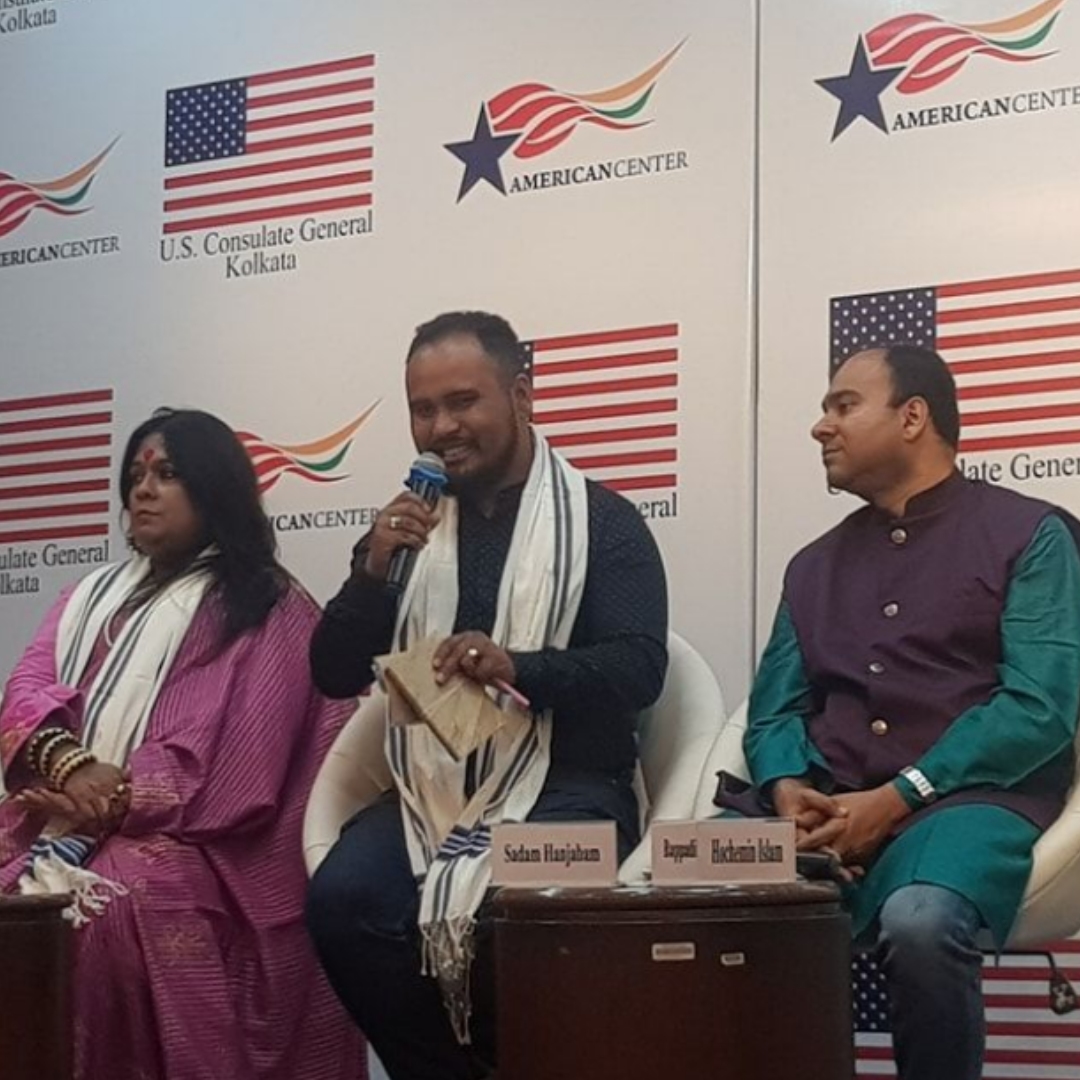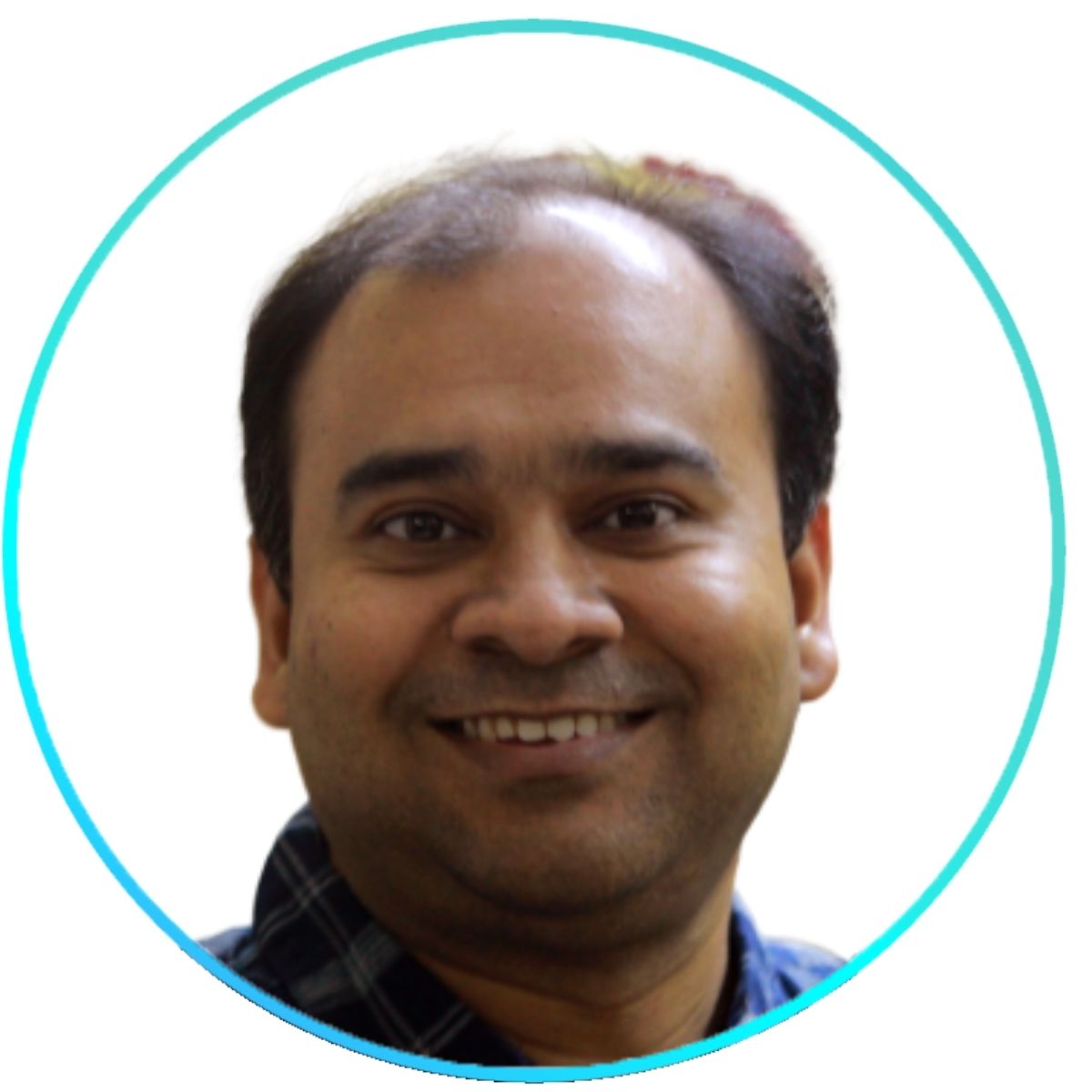
SAYAN: Amplifying Voices Of South Asian LGBT Millennial Community
Writer: Bappaditya Mukherjee
Bappaditya Mukherjee is the Founder- Director of the 15-year-old youth-led organization Prantakatha that work for the rights of marginalized youth across Bengal. Prantakatha is a key member of ComMutiny – The Youth Collective and vartaLeap ecosystem whose vision is to mainstream youth centric development.
India, 1 Sep 2021 12:00 PM GMT | Updated 1 Sep 2021 3:40 PM GMT
Creatives : Ankita Singh |
A literature lover who likes delving deeper into a wide range of societal issues and expresses her opinions about the same. Keeps looking for best-read recommendations while enjoying her coffee and tea.
Writer : Bappaditya Mukherjee
Bappaditya Mukherjee is the Founder- Director of the 15-year-old youth-led organization Prantakatha that work for the rights of marginalized youth across Bengal. Prantakatha is a key member of ComMutiny – The Youth Collective and vartaLeap ecosystem whose vision is to mainstream youth centric development.
SAYAN, even in its nascent years has proved to be an important collective of gender and sexual minority in South Asia. Building people-to-people connection in a community-driven network that brings allies together is evidently a powerful attempt towards LGBT liberation
Though the LGBT community is struggling for recognition and dignity, challenges all across the world' in global South it seems to be more complex than in the global North given the higher level of inequality. With resource scarcity and gender inequality on a higher side in the South, the millennials in the global North are comparatively better off than their counterparts in the global South. In this context, South Asia becomes an important block in terms of the LGBT movement. Owing to its rich history and culture, the South Asian region offers many diverse narratives around gender and sexuality, then the industrialized Europe or USA.
A nuanced analysis of access to human rights in the LGBT movement across the globe shows how severe penalties are for queerness in South Asian countries as compared to Europe or USA. The following map developed by ILGA gives a clearer understanding of the issue.
In 2017 a discussion spearheaded by LGBT activists in India opened the window for focusing exclusively on South Asia as a block. The idea was to find some suitable process through which young queers across South Asia could share their challenges with each other and co-create a solution exchange platform.
In the Pride month of 2017 American Center Kolkata offered a technological solution to this issue. Under the leadership of the then Consul General of USA in Kolkata Craig Hall, a Digital Video Conference (DVC) was organized for the first time.
Different US Missions in neighbouring countries including Pakistan, Bangladesh, Nepal, Sri Lanka, Cambodia, and different cities in India came together through US embassies and US consulates in receptive places to discuss the formation of such a solution exchange platform. In neighbouring countries where even talking about sexuality and gender identities is considered a crime, physical spaces in US embassies provided the activists a safe space to talk, share and connect.
Even then in the first of the DVC, activists from Pakistan could not physically reach US Embassy in Islamabad due to threats from religious fanatics. The idea of a collective as a resource and solution came from the collective building processes at ComMutiny - the Youth Collective. ComMutiny came as a collective of youth-led organizations operating across India. Prantakatha, one of the members of Forum, the General body of CYC conveyed this idea of Collective of Young LGBT across South Asia.
Overcoming several challenges slowly and steadily, this platform for the LGBT community in South Asia started becoming popular across India and neighbouring countries especially among the millennials. After couple of DVCs, the platform came to be named SAYAN or South Asian Young Queer Activists Network.
While SAYAN was getting formed, the Supreme Court of India in 2018 (after nearly two decade long legal and social battle) gave a historic verdict repealing IPC 377 in case of consenting adults in India.
According to IPC 377 any "carnal intercourse" (non peno-vaginal intercourse) could lead to the persons involved facing 10 years of imprisonment. It was a British era law ripe with Victorian morality which saw sex only from the lens of procreation. Though the law nowhere specified people with any particular gender identity or sexual orientation, but given the prejudices and lack of proper knowledge, this law has been used to harass, jail, torture and abuse gender and sexual minorities in India.
On 6th of September 2018, after much deliberation a constitutional bench in Supreme Court of India declared IPC 377 anti-constitutional, if used in case of consenting adults. In effect, Homosexuality ceased to be a criminal offence in post-independence India. Millions of Indians who were considered criminal for no fault of theirs, for the first time truly became free after 70 plus years of gaining independence from British.
This immediately gave India a greater opportunity to lead the collaboration of SAYAN with greater flexibility.
Around the same time ComMutiny conceptualized the work of building a collective of collectives. The vartaLeap Coalition binds people, organisations with universal values of human rights and dignity and the shared mission of "Every Youth a Jagrik, Every Space Nurturing Jagriks," Jagrik being an awakened, active citizen, jagruk nagrik. SAYAN is an attempt of another vartaLeap process in a different contour.
Ranjita Sinha, veteran Trans rights activists, who was also one of the few Trans persons in India who were petitioners in the 2015 historic NALSA Judgment recognizing Transgender as equal citizens by the Supreme Court, became the co-convener of SAYAN. Hochemin Islam, practising nurse from Bangladesh and a Trans Woman become the co-lead. Saro Imran from Pakistan, Sumit Pawar from Mumbai, Sadam Hanjabam from Manipur, Soth Peosamnang from Cambodia, Aanik Rana Magar from Nepal and many more took leadership roles in SAYAN.
February 2020 saw the first physical conference of SAYAN leaders in Kolkata. The conference was marked by the opening of first-ever exclusive Transgender Clinic in Peerless Hospital in eastern India. For the LGBT community, especially Transgenders, accessing the mainstream health care infrastructure has always been traumatic, given the bullying and harassment they face in a male-female binary set up. Extreme cases where Trans persons die due to the unavailability of trauma care in a binary set-up is still a regular affair across India.
The clinic named Antar (or Deeper Self) thus became a milestone in Transgender Health Care access in India. The clinic was inaugurated by Dr Shashi Panja, Minister in Charge of Women & Child Development and Social Welfare among other dignitaries. She is also the Chairperson of West Bengal Transgender Development Board, the nodal Government agency working for the rights of Transgender citizens in the State of West Bengal.
In Bangladesh, on 25th April 2016, Xulhaz Mannan, an employee of the US Embassy in Dhaka and the founder of Bangladesh's first and only LGBT themed magazine, Roopban, and the LGBT activist Mahbub Rabbi Tonoy, were killed in a machete attack by Islamic extremists. Five years later, their murderers are yet to be booked. But they dealt a severe blow to the equality movement in Bangladesh.
With SAYAN coming into the picture, and advocacy and media reports on the social work done by Hochemin Islam in Bangladesh including but not limited to, as a front line Covid warrior in ICU of one of the most valued hospitals in Dhaka, people in Bangladesh have started celebrating her. Later when she came out as one from the Third Gender as coined by Bangladesh Government, it snowballed into a series of positive results. Currently, she is doing her Post Graduation in Public Health at BRAC University as first-ever Transgender student in Bangladesh. In June this year, Bangladesh Government announced a historic law offering tax concessions to corporates that employ members from the third gender. This will surely open up many livelihood opportunities for members of the Transgender community in Bangladesh.
SAYAN, even in its nascent years has proved to be an important collective of gender and sexual minority in South Asia. Building people-to-people connection in a community-driven network that brings allies together is evidently a powerful attempt towards LGBT liberation.
Also Read: From Alienation to Belongingness: My Experience Of #SaathNirbhar
 All section
All section















